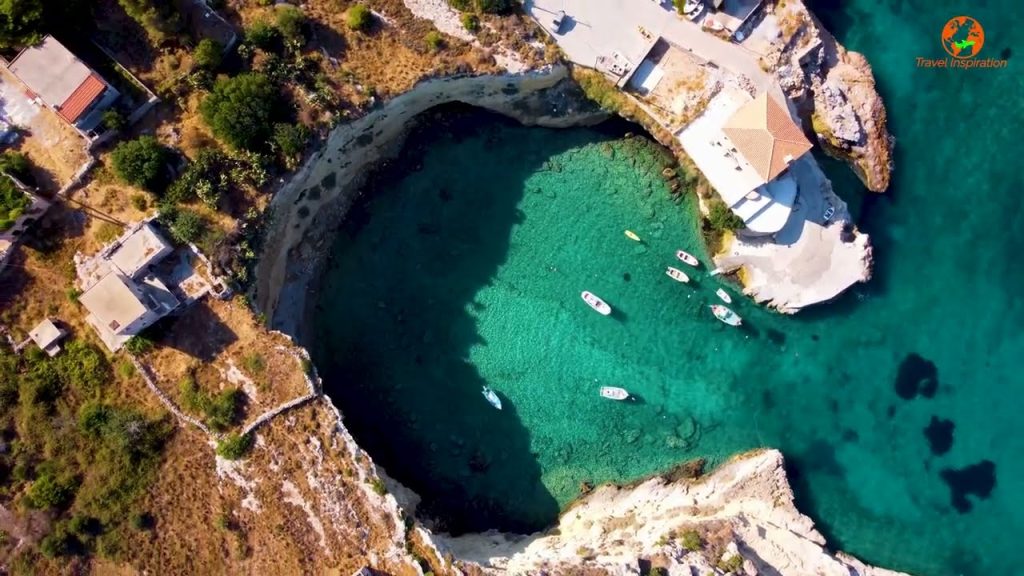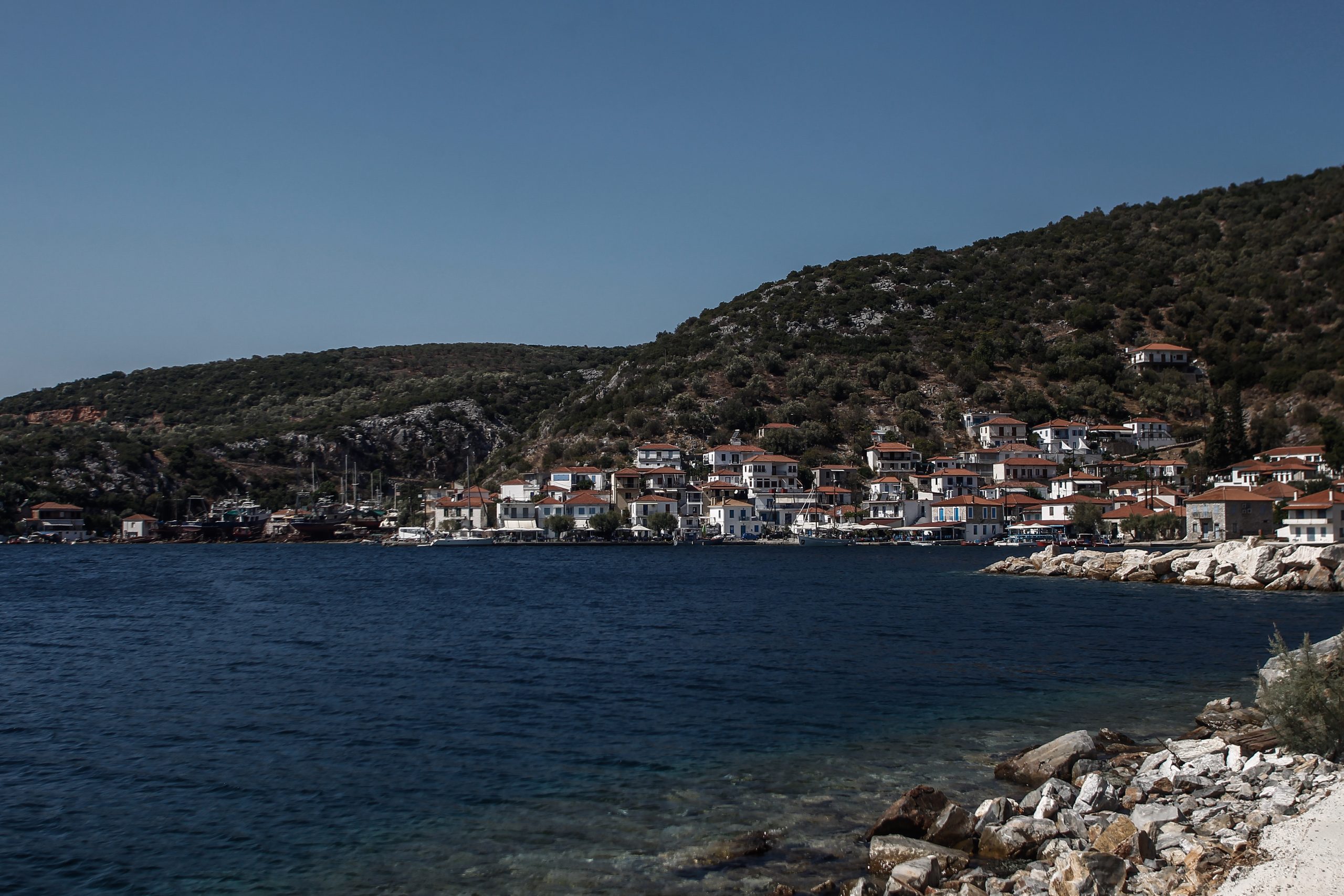In the Aeneid, Virgil depicts the struggle of the newly displaced Trojans to find a new home, under the leadership of Aeneas. The Trojans, having only recently lost the Trojan War to the Greeks, travel in search of a new home, eventually settling in Italy−to the dismay of some of the Italians. The motif of Troy’s rebirth plays a major role in the Aeneid in that it is intertwined with Aeneas’s personal destiny; the two domains are so intertwined that Aeneas both prevents his own happiness and alters his own personality to successfully create a new Troy. Over the course of the epic, Aeneas consciously realizes that he is fated to move Troy into the future and both sacrifices his personal happiness and adjusts his character to satisfy his destiny.
At the beginning of the Aeneid the Trojans are a people without a home. Displaced by the Trojan War, the surviving Trojans sail away from Troy in search of a place to establish a new city−Virgil devotes the first six books to telling the story of their wanderings. During this chaotic period, the Trojans fall under the leadership of Aeneas, who will re-found Troy according to Virgil. Aeneas recognizes his destiny early on in the Aeneid: at the end of book one he becomes inexplicably overwhelmed with emotion when examining a relief sculpture of the Trojan War (1.610-77). Virgil indicates that while viewing this sculpture in Dido’s kingdom Aeneas finally trusts his destiny and believes that he will ultimately succeed in helping the Trojans, stating: “...here for the first time he took heart to hope / For safety, and to trust his destiny more / Even in affliction. (1.612-14)” Aeneas realizes that, despite his current state of “affliction”, the outcome of all of these trials and tribulations will ultimately be positive.
This realization indicates that Aeneas will work to reestablish Troy−undoubtedly helping the Trojans because their cause would hardly be successful with a halfhearted leader.
Furthermore, as Aeneas examines the various reliefs, he becomes even more overwhelmed with emotion, openly weeping as he passes from image to image. Aeneas’s emotion stems from his realization of the need to preserve the Trojan legacy: “he found before his eyes the Trojan battles / In the old war, now known throughout the world” (1.619-20). With each image, Aeneas’s feelings grow stronger and he realizes that the Trojans’ struggles in war have pervaded throughout the world. Viewing these images gives Aeneas a motivation to help preserve Troy−by re-founding Troy Aeneas can ensure that Trojan struggles in war do not go to waste.
Evidently Aeneas quickly learns that Troy’s rebirth is inevitably linked to his own destiny as he references his destiny numerous times throughout the epic. For example in Book IV, not only does Aeneas claim responsibility for Troy’s rehabilitation, but he also goes on to indicate that he alone will renew Troy’s reputation, stating: “I should look after Troy” (4.472-77). This statement demonstrates that Aeneas recognizes his destiny as being linked to Troy’s rebirth. Although reluctant to do so at first, Aeneas rises to the occasion and takes on the task of renewing Troy.
Upon realizing his destiny, Aeneas’s personality starts to transform and he begins to willingly devote all of his energy into Troy’s rebirth. Of course, with such a substantial task comes substantial personal sacrifice−Troy’s rebirth comes at significant personal expense to Aeneas’s happiness. The main instance of this sacrifice occurs when Aeneas’s destiny forces him to abandon Dido, his lover. Dido, ruler of Carthage after her husband’s death, offers Aeneas stability and tranquility in comparison with his current quest−it had Aeneas chosen to stay with her, he would be able to rule a city without facing any hardships.
In other words, all the work has been done for him to create a kingdom. However, Aeneas does not choose to take the easy route, stating: “duty-bound, / Aeneas, though he struggled with desire / to calm and comfort her… / to speak to her… / took the course heaven gave him / and went back to the fleet” (4.545-51). Here Aeneas demonstrates the notion of pietas, or duty, by putting his cause before his personal preferences.
Apparently Aeneas wants nothing more than to stay with Dido−or at the very least comfort her−but he realizes that he is not fated to do so. Aeneas acknowledges that he would very much prefer to stay with her during their argument, where he admits to Dido that the gods are forcing him to leave her−he does not act in his own interest. Troy’s rebirth forces Aeneas to make personally unfavorable decisions, it would be much easier for Aeneas to stay in Carthage and rule with Dido, whom he loves, until his death. Instead, however, he recognizes his destiny and selflessly denies himself immediate happiness to bring happiness to his people. In short, Troy’s rebirth induces Aeneas to evaluate and rank his priorities, with his personal happiness coming second to Troy’s.
While assisting with Troy’s rebirth forces Aeneas to reassess his priorities, it also causes a change in character. Aeneas, over the course of the epic, through the trials and tribulations that he faces, eventually becomes more Achillean in character. The
conflict that arises between Aeneas and Turnus dominates the second half of the epic, the Latin commander; this conflict mirrors the conflict between Achilles and Hector. Turnus enrages Aeneas by killing Pallas, whom Aeneas is especially close to, just as Hector’s slaying of Patroclus enrages Achilles.
Aeneas fights with renewed vigor following Pallas’s death, taking prisoners for sacrifice, denying mercy to pleading soldiers, and brutally disfiguring other soldiers (10.725-849). Aeneas’s previous disposition, one of leadership and limited
violence, immediately changes upon Pallas’s death to one of a ruthless killer, similar to Achilles. Had Aeneas not been called upon to assist in the renewal of Troy, it is unlikely that he would make such a change in personality.
Perhaps the most profound evidence of this change occurs at the end of the epic, where he denies mercy to Turnus: “...Fierce under arms, Aeneas / Looked to and fro, and towered, and stayed his hand / Upon the sword hilt… What Turnus said began to bring him round / From indecision. Then to his glance appeared...Enemy still” (12.1280-87). Here Aeneas has just incapacitated Turnus with a spear and stops to consider Turnus’s request to spare his life. Aeneas seems inclined to consent to this request, despite his “fierce” state, he still maintains his hand on the sword hilt. This moment of indecision indicates that a trace remnant of Aeneas’s personality, his merciful side, lingers. However, in Achillean fashion, rage boils up inside him after he glances at Pallas’s swordbelt that Turnus sports on his shoulder; Aeneas becomes furious with Turnus for wearing an object that he associates with such grief. As a result, just as Achilles slays Hector in honor of Patroclus, so too does Aeneas in honor of Pallas. This final scene demonstrates the extent to which Aeneas’s character has been transformed by his mission to reestablish Troy: the last vestiges of mercy that he almost granted are chased away by blinding anger for his fallen comrade.
Being the key part of Troy’s rebirth causes Aeneas to change his personality to attain the goal of a renewed Troy, which ends badly for Turnus.
The motif of Troy’s rebirth is central to the Aeneid, which takes place a short time after the Trojan War. The renewal of Troy intertwines with Aeneas’s own fate forcing him to make significant changes to his life in order to fulfill his destiny. Once he recognizes this, he puts his people’s happiness before his by leaving Dido against his free will, knowing that he is not destined to stay and rule Carthage. Furthermore, his personality changes, from a benevolent leader to an Achillean menace, brutally killing and denying mercy to his enemies as revenge for his fellow soldier’s death. Evidently in order for Troy to be reborn, the fates require the sacrifice of the happiness and the change in personality of one leader, Aeneas.
Πηγή :
studentpulse.com




































